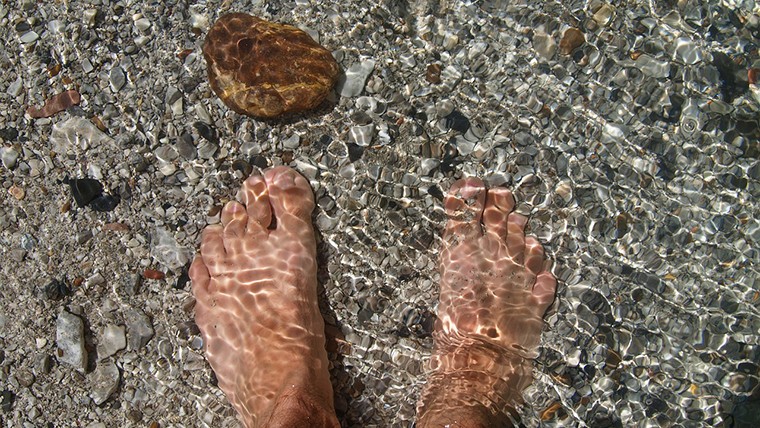Adult Survivors of Childhood Physical/ Sexual Abuse
Effects of Childhood Physical/Sexual Abuse
Child abuse has lifelong effects. Adults who are survivors of abuse often report a feeling of being “stuck”. Their efforts to build and manage their lives often seem fruitless, hollow, or even hopeless. There can be a persistent perception that they are somehow different from others. They commonly report feeling that they are on the outside looking in or believe that they just don’t belong.
Often, these symptoms are a mystery to the sufferers. They may not understand the connection between their childhood situation and their adult experience.
Generally, the abuse has either been accepted by the survivor as “normal” or is viewed as something that is better left in the past.
In some cases, the abuse may not be remembered. Consequently, the significance of symptoms and problems arising from the abuse is often not recognised.
The adult symptoms of childhood abuse can take many forms. Many adult survivors may:
- Find it difficult to develop or maintain close personal relationships.
- Have a strong desire to live in isolation or to “hide out” from life.
- Endure physical symptoms like neck, back, stomach and gynecological problems that persist despite efforts at good self-care.
- Experience feelings of sadness, fear and anger that often seem unmanageable or overwhelming.
- Undergo panics, rages, depressions, sleep disorders, or self-mutilation or have suicidal thoughts.
- Find themselves depending on alcohol, other drugs, or may develop eating disorders to cover feelings of humiliation, shame and low self-esteem.
- Experience problems like low self-esteem, avoidance of sex, promiscuity, or inability to experience orgasms or erections.
- Exhibit signs of trauma like panic attacks, numbing of body areas, and feeling of being disconnected from their bodies.
Most of these symptoms are due to the disruption of a healthy psychological development. An abusive childhood situation interferes with the child’s natural movement toward growth and expansion of his or her experiences.
All children have a right to have their basic needs met. Children need to feel secure in order to learn to trust their environment. Abuse denies these very basic needs.
As a result, adult survivors are often left with a deficit of emotional and practical skills for dealing with their present “grown-up” world. As a result of having limited opportunities to naturally develop these skills, survivors will frequently develop extraordinarily complex coping mechanisms in their attempts to appear “normal.” As a child, the survivor may have learned the importance of “pretending that nothing is wrong.” This coping mechanism allows them to function in society in ways that never allow anyone to guess that they struggle with such pain on the inside.
Some survivors compensate for their feelings of shame or inadequacy by becoming “over-achievers.”
They frequently mask their pain or feelings of fragility so successfully that it becomes all the more important to the survivors that others around them do not discover that they are not really who they pretend to be.
Barriers to Healing
It is often difficult for adult survivors to seek help. The following are some of the most common barriers to getting help that they face:
- Denial that childhood abuse is a problem. Many adult survivors have difficulty connecting their current life situation with earlier childhood abuse. This denial can take many forms: rationalizing, minimizing, intellectualizing, focusing of the problems and shortcomings of others, hoping the problems will take care of itself, feelings that they can take care of their problems on their own.
- The belief that things can never get better, there is no hope.
- Fear that they will be consumed by the intensity of their feelings if they begin to deal with the abuse. They often fear the feelings will engulf them or that they will explode if they lose control.
- Fear and shame about sharing family secrets. Survivors often fear that to get help is to betray and hurt their families, or that they will be punished for exposing family secrets.
- Fear that they will not be believed because they may not be able to remember the details of their abuse.
- Inability to blame their parents or other adults for the abuse. We are taught to love and honor our parents and to be respectful of other adults.
- Fear of taking responsibility for looking at oneself and one’s behviour. It can be much easier for the survivor to continue to blame others for the maladaptive ways that she/he is dealing with the abuse.
- Fear that there will be nothing left in the advanced stages of healing. This fear is sometimes overwhelming. As survivors strip away all the old negative beliefs that have been the burdensome but familiar foundation for their lives, they begin to feel that everything they’ve ever known is shifting and nothing is certain or sure.
While these barriers are strong ones, they can be overcome. Consistent, patient, and caring effort is needed by both the survivor and those who are aiding in this healing process. While it is difficult and often painful to work towards recovery from childhood abuse, healing is possible when survivors have access to a support network that can provide them with nurturance, assistance, and appropriate levels of care.

